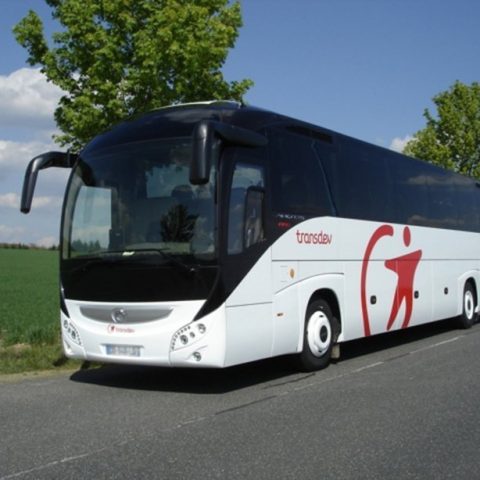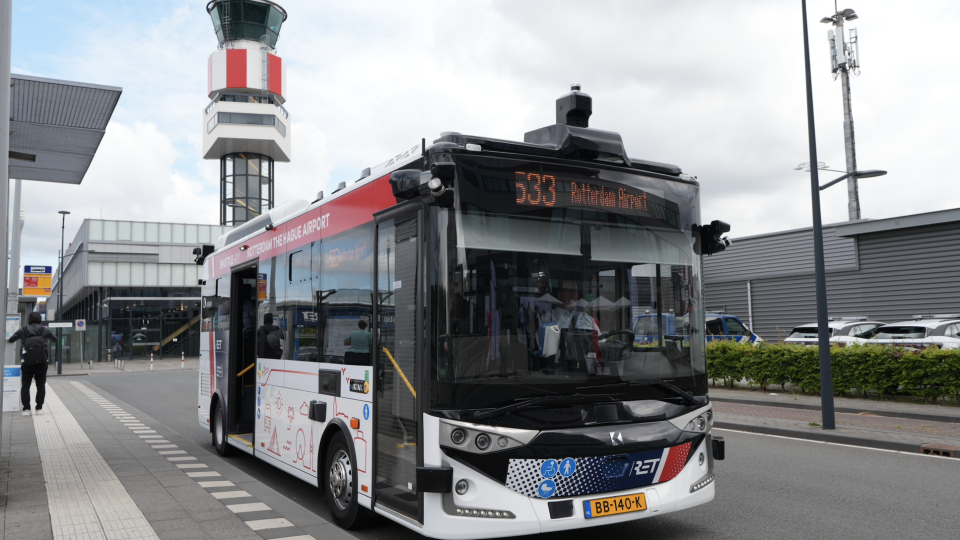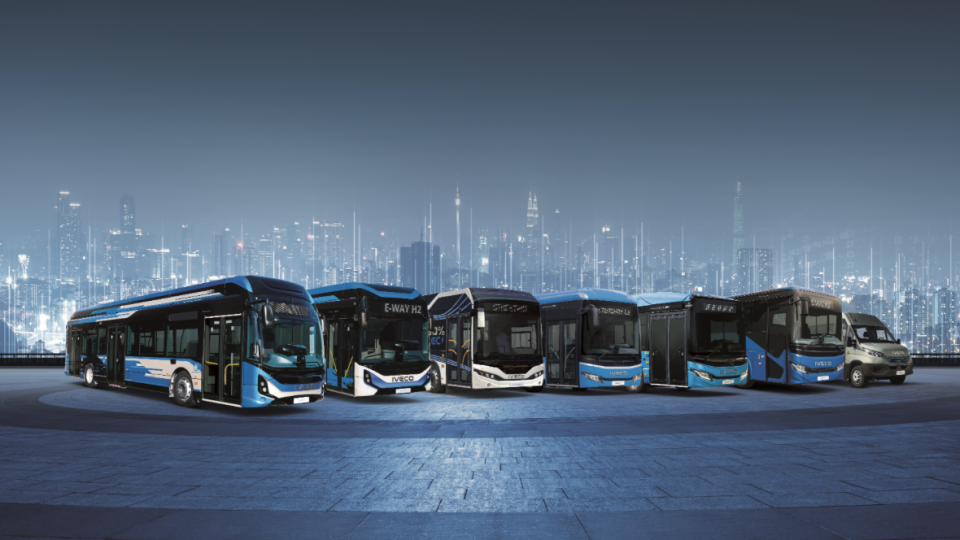Transdev results 2022: revenues exceed 2019 level, but passengers are still -20%
It’s time to disclose financial results 2022 for Transdev: last year the group posted net income of €20 million. Its revenues grew by 10%, marked in particular “by strong commercial development in all its markets”, eaching €7.7 billion by 2022 (it was 7.416 billion in 2019, 6.75 billion in 2020, 7 billions in 2021), with […]

It’s time to disclose financial results 2022 for Transdev: last year the group posted net income of €20 million. Its revenues grew by 10%, marked in particular “by strong commercial development in all its markets”, eaching €7.7 billion by 2022 (it was 7.416 billion in 2019, 6.75 billion in 2020, 7 billions in 2021), with business outside France accounting for 65% of Group revenues.
In 2022, in terms of ridership, the group carried an average of 8.8 million passengers per day across all its networks, a strong recovery compared with 2021, -20% on the 11 million stated in 2019.
By the end of 2023, Transdev will operate a fleet of nearly 3,000 electric vehicles worldwide.
Thanks to the dynamism of our teams, we were able to win new markets, particularly in metros, where our development ambitions remain strong. With the acquisition of First Transit, Transdev is changing dimensions in North America, in order to take full advantage of the growth in shared mobility and to accelerate the energy transition of our networks, in response to environmental challenges
Thierry Mallet, Chairman and CEO of the Transdev Group.
Transdev results 2022
This is how Transdev recaps its results 2022: “Current operating result (COR) was €87 million, despite the strong impact of rising energy costs (diesel, natural gas, electricity), mainly in Europe (Germany, France, Czech Republic, etc.), which had a negative impact of €82 million for the year (net of indexation). This impact was partly offset by operational improvements of €45 million. Operating profit (EBIT) was up sharply to €81 million, while net result (group share) was €20 million for the year. Net debt at €1.134 billion (€226 million excluding IFRS16) continues to decline, down €81 million this year, and down 39% since 2019, with equity at €786 million, while gross CAPEX remains strong at €536 million (€1.8 billion over the last three years)”.
Transdev: North America in the spotlight
The takeover of First Transit, in March 2023, is recent news. This transaction makes Transdev the leading private operator of public transportation services in the United States and Canada, with a wide variety of transportation modes: bus and coach, paratransit, shuttle services, rail, light rail and fleet maintenance services.
Transdev group is deploying its “Moving Green” global decarbonization strategy throughout the world and across all its activities. This strategy aims to reduce greenhouse gas emissions by 30% per kilometer travelled and to increase the use of alternative fuels in its bus and coach fleets by 50% (gas, biogas, biofuels, electric, hydrogen) between 2018 and 2030.
Transdev now carries nearly 400 million passengers a year in North America, generating combined revenues of $2.6 billion (USD). The Group operates and maintains more than 440 sites in 43 states, Puerto Rico and six Canadian provinces for communities, schools, universities, airports and businesses. Transdev employs 35,000 people, has a fleet of more than 20,000 vehicles (owned or operated) and maintains an additional 39,000 vehicles and equipment in the United States through a specialized division. With the North American public transportation market expected to grow significantly over the next five years, Transdev is convinced that these positive trends will enable it to sustainably develop its business in the region.
“This transaction, financed from its own financial resources, thanks to the debt reduction of the last few years, will enable Transdev to strengthen its position as the world’s leading mobility group, with pro forma revenues of €9.1 billion in 2022 and a global workforce of over 100,000 employees”, Transdev states.
Transdev in 2022: decarbonization in the spotlight
Transdev group is deploying its “Moving Green” global decarbonization strategy throughout the world and across all its activities. This strategy aims to reduce greenhouse gas emissions by 30% per kilometer travelled and to increase the use of alternative fuels in its bus and coach fleets by 50% (gas, biogas, biofuels, electric, hydrogen) between 2018 and 2030.
The most significant achievement of 2022 is the GreenMóvil contract in Bogota, Colombia, which represents the commissioning of a fleet of 406 electric buses for TransMilenio, the largest in South America.
Over 500 e-buses in operation in the Netherlands
In the Netherlands, Transdev has passed the symbolic milestone of 500 electric buses in service in the country in 2022, powered by batteries or hydrogen, which represents one third of its fleet operated in the country.
What is also interesting, Dutch bus manufacturer VDL Bus & Coach and German energy company RWE will give a second life to the batteries of Transdev’s 43 electric buses in Eindhoven, the Netherlands. The used batteries will be used as an energy storage system before being recycled. The experience gained should enable a large-scale deployment and participate in the development of new circular economy solutions in the Netherlands.
In France, the Nomad Car Hydrogen zero-emission innovation project will enable the retrofitting of diesel buses into hydrogen zero-emission buses. This project will be launched this year in Normandy, in partnership with the Region, on the Evreux – Rouen intercity route.
In Germany, Transdev will be experimenting this year with the State of Bavaria a Siemens hybrid hydrogen train, equipped with high-capacity batteries, thus enabling this technology to be tested in real operating conditions before being deployed.
Transdev, heavy modes on a rise in 2022
In 2022, Transdev has strengthened its presence in heavy modes (trains, light rail and metros), with the start-up last June in Hanover (Germany) of the operation of 10 regional S-Bahn train lines, transporting some 30 million passengers annually. In Sweden, Transdev took over the operation of the Öresund rail lines in early December for two years, and in April it took over the Roslagsbanan train lines north of Stockholm.
In Morocco, Transdev has begun operating in February 2022 the extension of line 2 of the Rabat-Salé light rail system, operated by Transdev since 2011.
Transdev has taken the first steps towards achieving its objective of strategic comeback in the metro sector, with the award of two contracts: in Ecuador, Transdev has won a six-year contract with its partner Metro de Medellin to operate the new metro in the capital Quito, which will start operating in the first half of the year. In Canada, Transdev won a 30-year contract to operate and maintain the future “Ontario Line” automatic metro line in Toronto, which is currently under construction.
Finally, in France, at the end of 2022, Transdev won the first urban cable car project in the Greater Paris region from Ile-de-France Mobilités, which the group will operate in the Val-de-Marne department starting in the summer of 2025, capitalizing on its expertise, know-how and successful experience with the TransMiCable in Bogota.
Transdev, what happened in 2022?
“The year 2022 was marked by a number of commercial successes and network launches, both in France and around the world”. The group sums up:
– In France, the eight-year renewal of the delegated management contract for public transportation services in Saint-Etienne (€63 million per year), Transdev’s historic contract, the award of six bus networks in the Ile-de-France region (more than €140 million per year), including the new contract in the Val-de-Marne region, which includes the first urban cable car project in the Paris region. Transdev has also renewed its maritime contract with Compagnie Océane for seven years (€27 million per year) for connections to the islands of Morbihan, as well as the intercity lines in Normandy (€41 million per year).
– In the Netherlands, with the four-year extension (€118 million per year) of the operating and maintenance contract with Stadsregio Arnhem-Nijmegen (urban, intercity, train and trolleybus 2.0) Transdev has also put 20 zero-emission hydrogen buses into service in South Holland.
– In Sweden, Transdev has successfully started operating 320 biofuel buses north of Stockholm. The two-year renewable Öresund rail contract represents annual revenues of 70 million euros.
– In New Zealand, in July, Transdev began commercial operation of the airport link from downtown Wellington, using a fleet of electric buses.
– In Australia, with the renewal for 10 years of the contract (€52 million per year) for buses in Western Australia, for the Transperth networks already operated by Transdev since 1996. Last April, Transdev also commissioned its 500-bus network in Sydney (Region 9), including 146 electric buses.
– In the USA, in California, with two contracts, one renewed for four years (€57 million per year) with Foothill Transit for the operation of urban services – including a share of the fleet in electric buses – and the gain of the contract with Tulare County (TCRTA), for five years (€13 million per year).
Transdev and the issue of drivers’ shortage
Transdev, like all mobility players, is facing strong tensions in the labor market, which have resulted in a shortage of drivers and maintenance technicians. In response, the Group has successfully launched major recruitment and training campaigns in all its countries in order to ensure the expected service. In France, in 2022, Transdev has recruited over 4,000 drivers to meet the needs of its transportation networks. Through its own apprentice training center “Académie by Transdev”, the Group has also trained 729 new drivers in France in 78 sessions, with a 26% rate of women.
“The year 2022 was clearly a year of recovery for our group, despite an inflationary context and the energy crisis. Thanks to the dynamism of our teams, we were able to win new markets, particularly in metros, where our development ambitions remain strong. With the acquisition of First Transit, Transdev is changing dimensions in North America, in order to take full advantage of the growth in shared mobility and to accelerate the energy transition of our networks, in response to environmental challenges,” said Thierry Mallet, Chairman and CEO of the Transdev Group.








